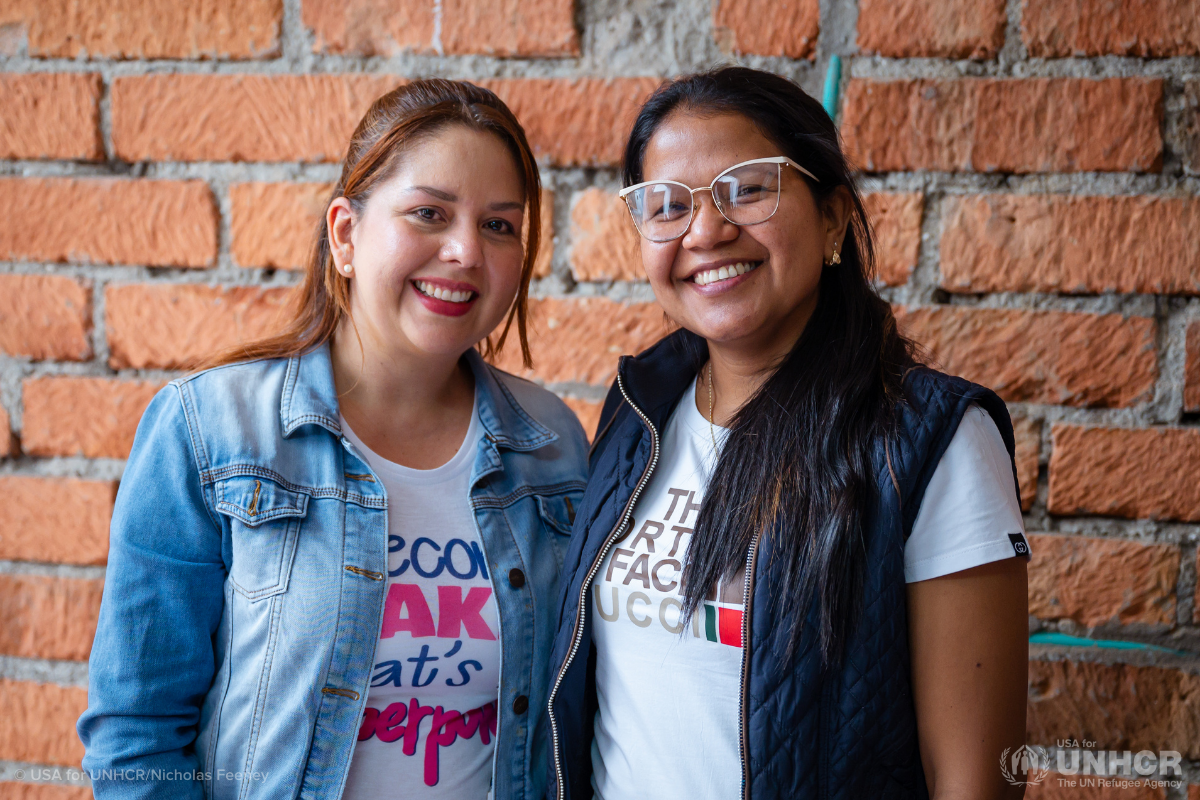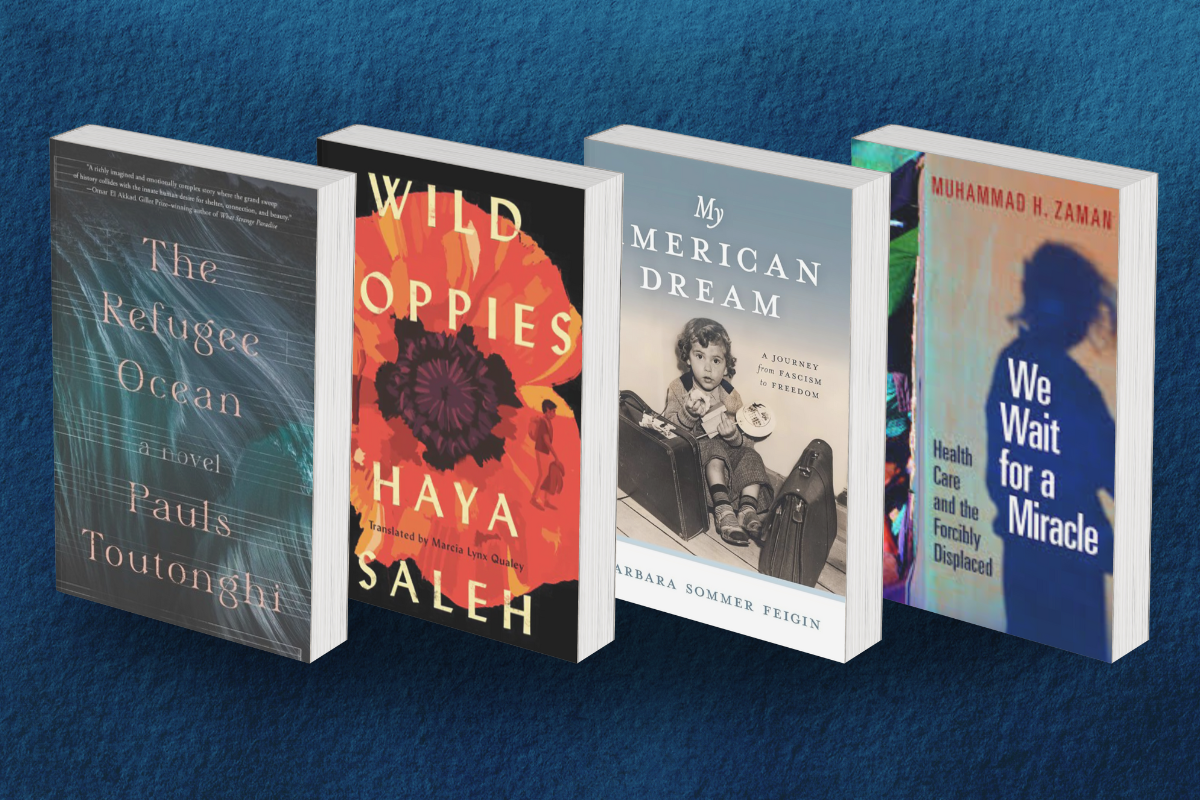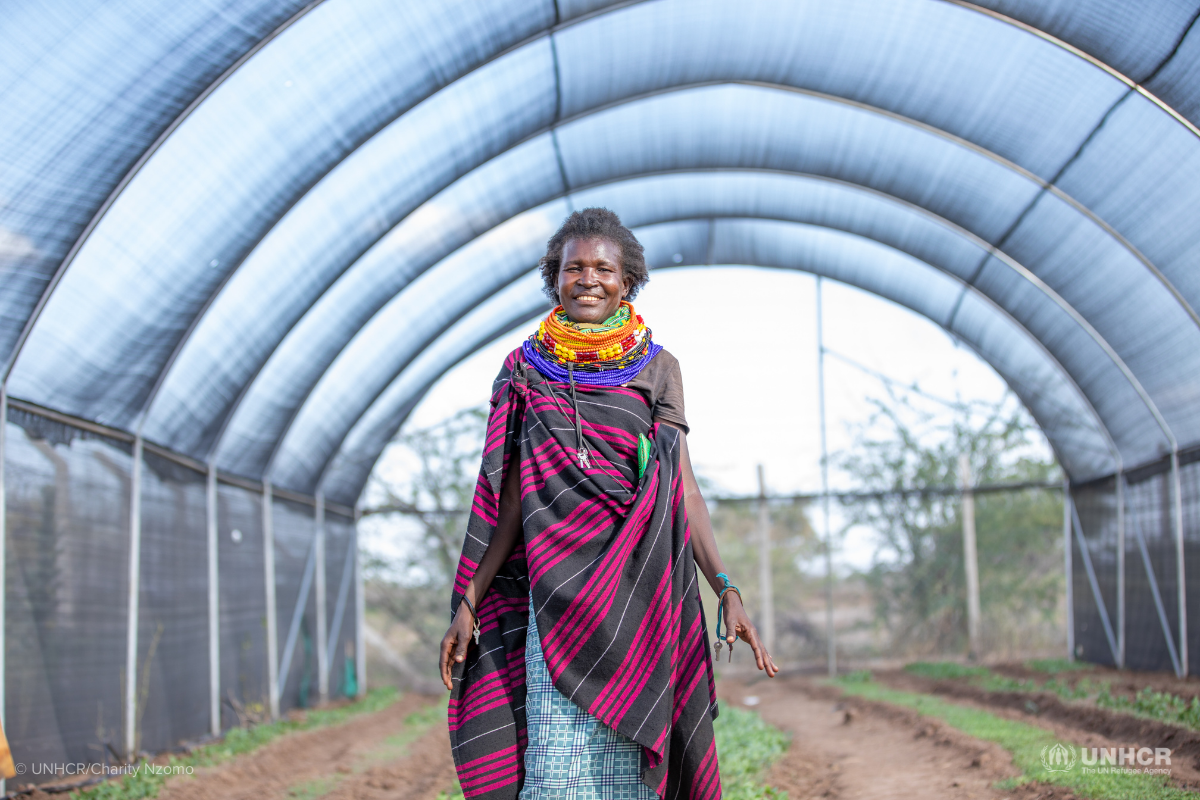What is Iftar? How refugees break fast during Ramadan
All month, those observing Ramadan have been fasting during the day and having Iftar at night. But what is Iftar, and how are refugees around the world observing?
Iftar, also known as futoor (the Arabic word for breakfast), is a meal held every day during Ramadan at sunset. Fasting is one of the main pillars of Ramadan, and those observing the holiday do not consume any food or drink between sunrise and sunset. After evening prayer and sunset, Muslims break their fast with Iftar.
Traditionally, those observing Ramadan break their fast by eating three dates, to emulate the way the prophet Mohammed broke his fast. Then, Iftar begins — a celebration with plenty of food, family and friends. Although Ramadan is observed across countries and cultures, every region has its specialty traditions and dishes. In Afghanistan, the fast is traditionally broken with dates and shorwa, a stew consisting of meat, kidney beans, chickpeas and vegetables. In Bangladesh, the sweet drink of shorbot is common at the Iftar table, typically made from fruits and flower petals. In Somalia, iftar would not be complete without injera, a sourdough pancake that is a staple at the center of every Somali iftar table.
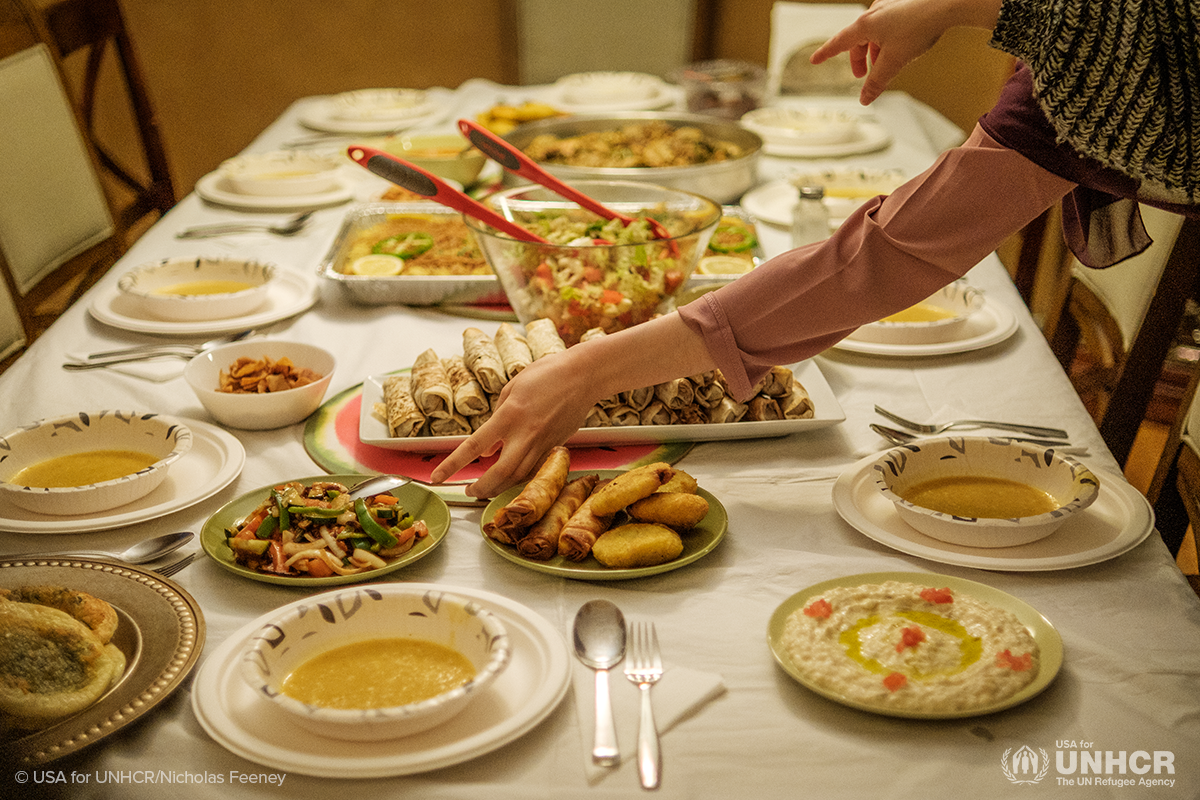
However, for those who have been forced to flee, these traditions can be difficult to continue when far from home. Many refugees have limited access to food and supplies, often leaving their Iftar tables bare of the usual drinks and dishes. Separated from their families, Iftar can also be a reminder of those they had to leave behind.
This Ramadan, see how refugee families are overcoming, celebrating and finding joy despite their circumstances.
Nahla
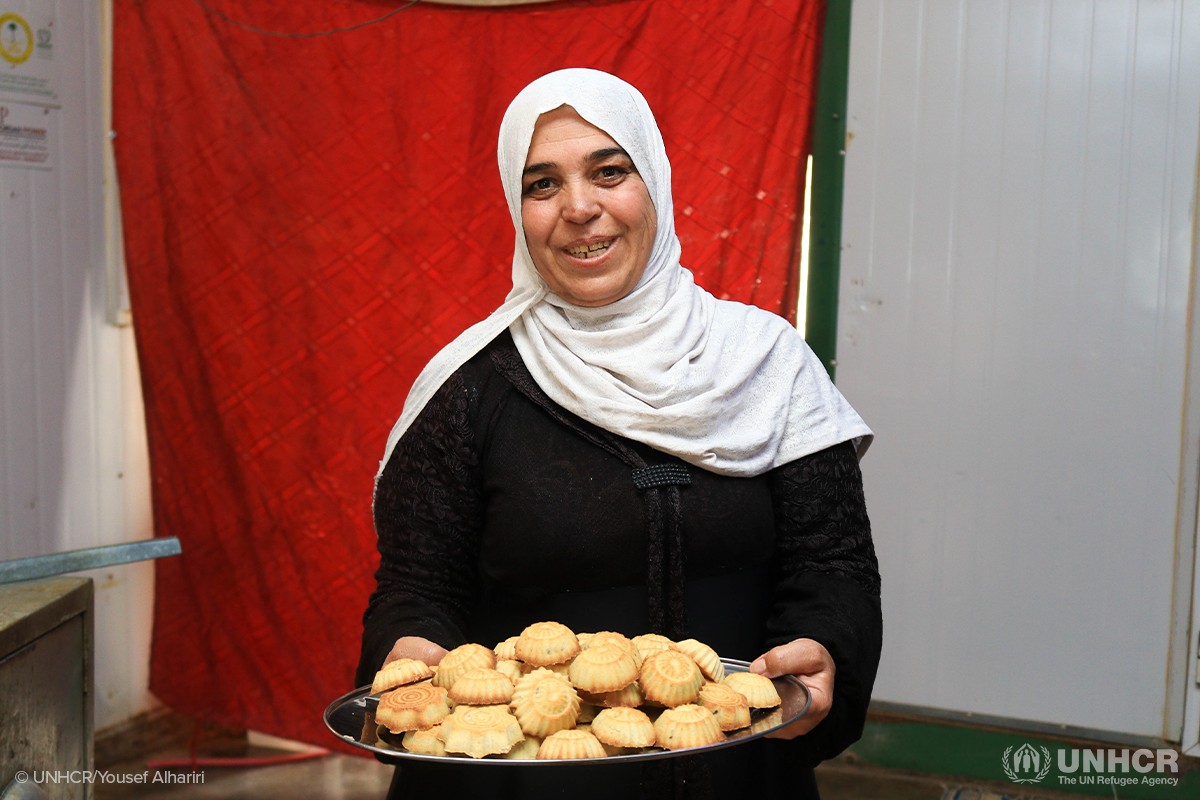
Za’atari refugee camp in Jordan is home to roughly 80,000 Syrian refugees. Nahla has lived in Za’atari since 2012, after she was forced to flee her home in Syria. She is holding a tray of Ma’amoul, Arabic cookies filled with dates and nuts, that she has prepared to celebrate Eid al-Fitr. Nahla learned the recipe from her mother back when they lived in Syria. Now, living in Za’atari, she passes the recipe on to her own daughters as they prepare to break fast.
Habibah
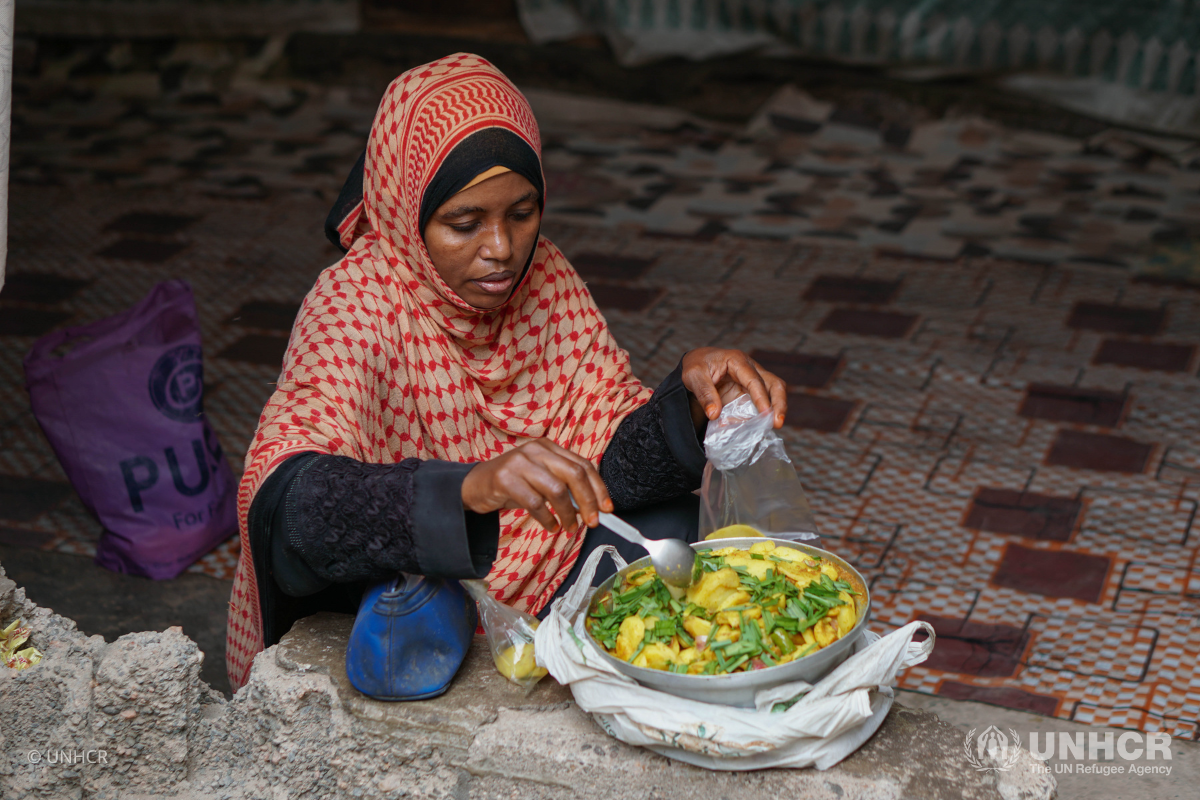
"My children are too young, and they don't understand that I have nothing," says Habibah. "I am a responsible mother, and I will try to find another income for my children." Habibah fled violence in her home country Somalia over 20 years ago. Today, she lives in Yemen with her six children and sells ice cream and potatoes to provide for her family.
Habibah and her family are spending another Ramadan as refugees under vulnerable conditions, "We are afraid that during Ramadan we might have nothing to break our fast with." Despite the difficulties, Habibah is determined to provide for her children, "I will fight to find any source of income."
Um Hadi
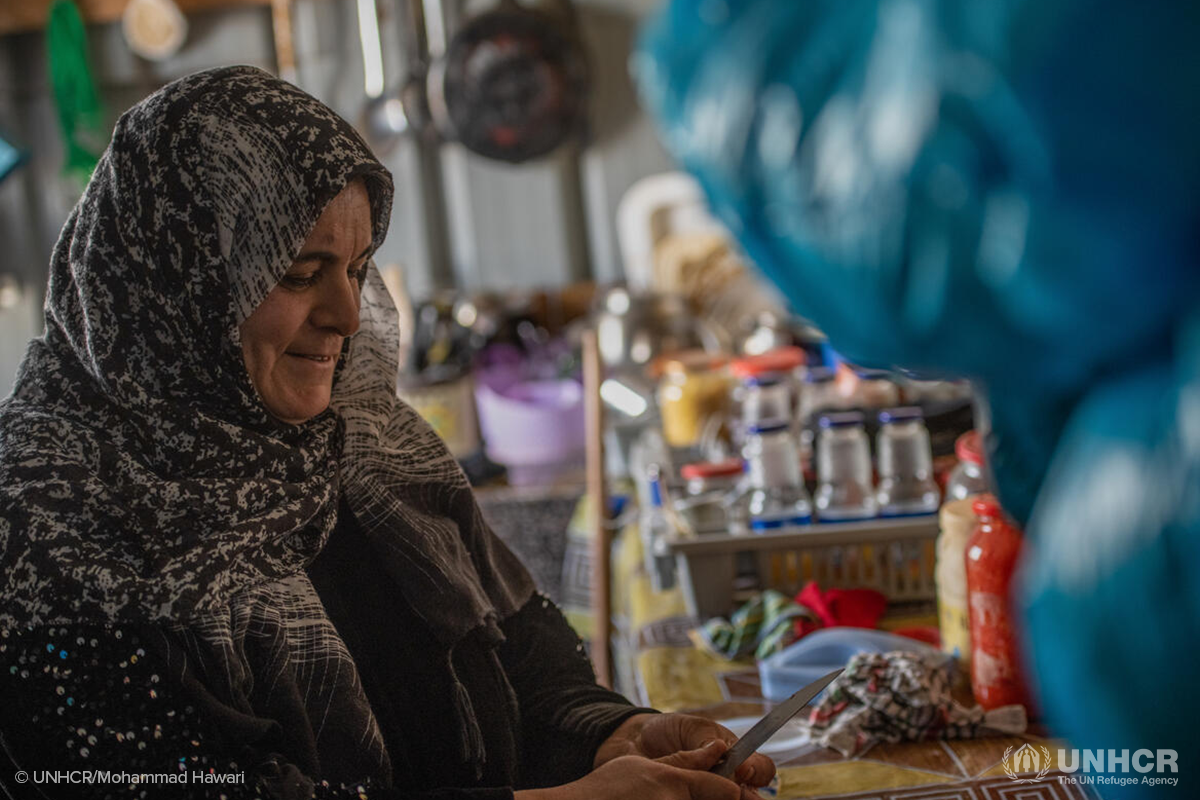
Um Hadi and her family are celebrating their sixth Ramadan in the Azraq refugee camp in Jordan. They were forced to flee their home in Syria in 2016 after the loss of Um Hadi’s husband. Now, she is the primary guardian for their three children, Hadi, Osama and Shatha.
As she prepares Iftar for her family, she reminisces about her family back in Syria and celebrating Ramadan with them, “I call my mom every day to check on her.”
Khatema
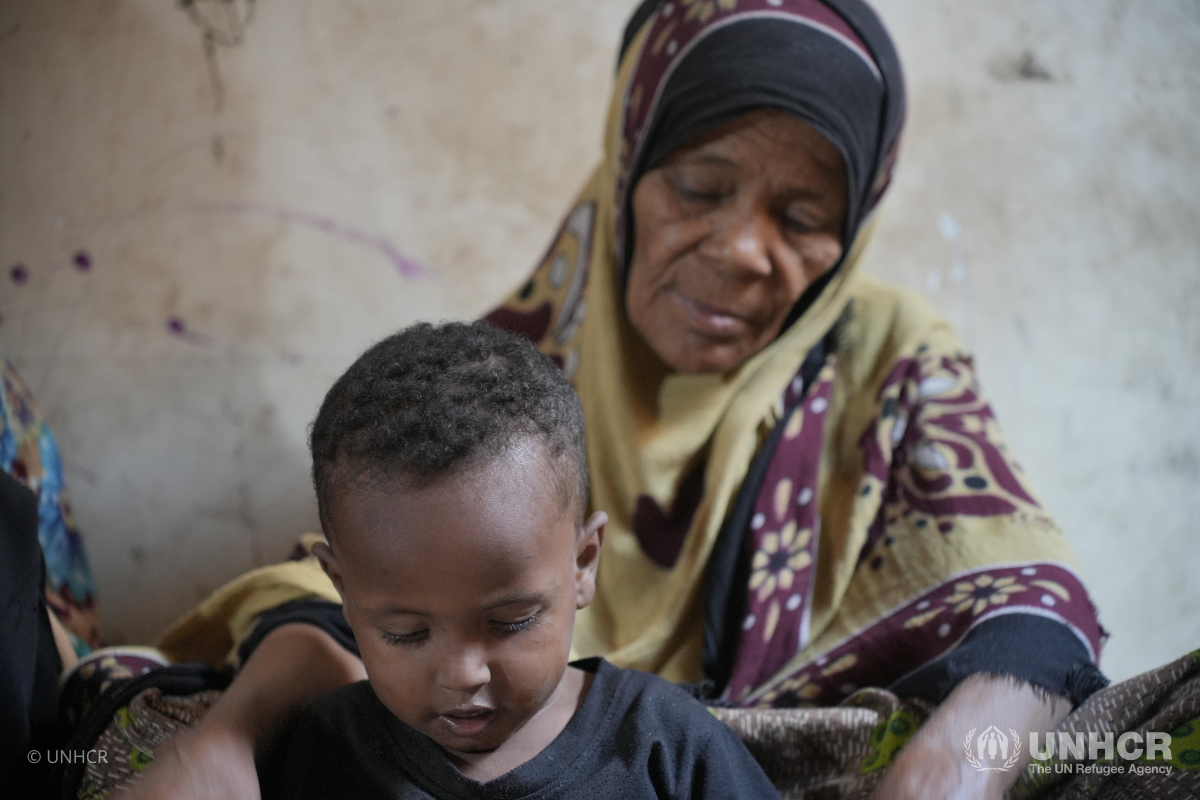
Khatema, an internally displaced Yemeni mother and her family are spending another Ramadan in harsh conditions without enough food to break fast. "Ramadan comes and we're short in milk, soup, we lack this and that ... we lack everything ... we have whatever God sends us for Iftar."
She is one of millions of Yemenis who depend on humanitarian support to make ends meet. "May God release the hardship and provide us with what we need."
Khadija
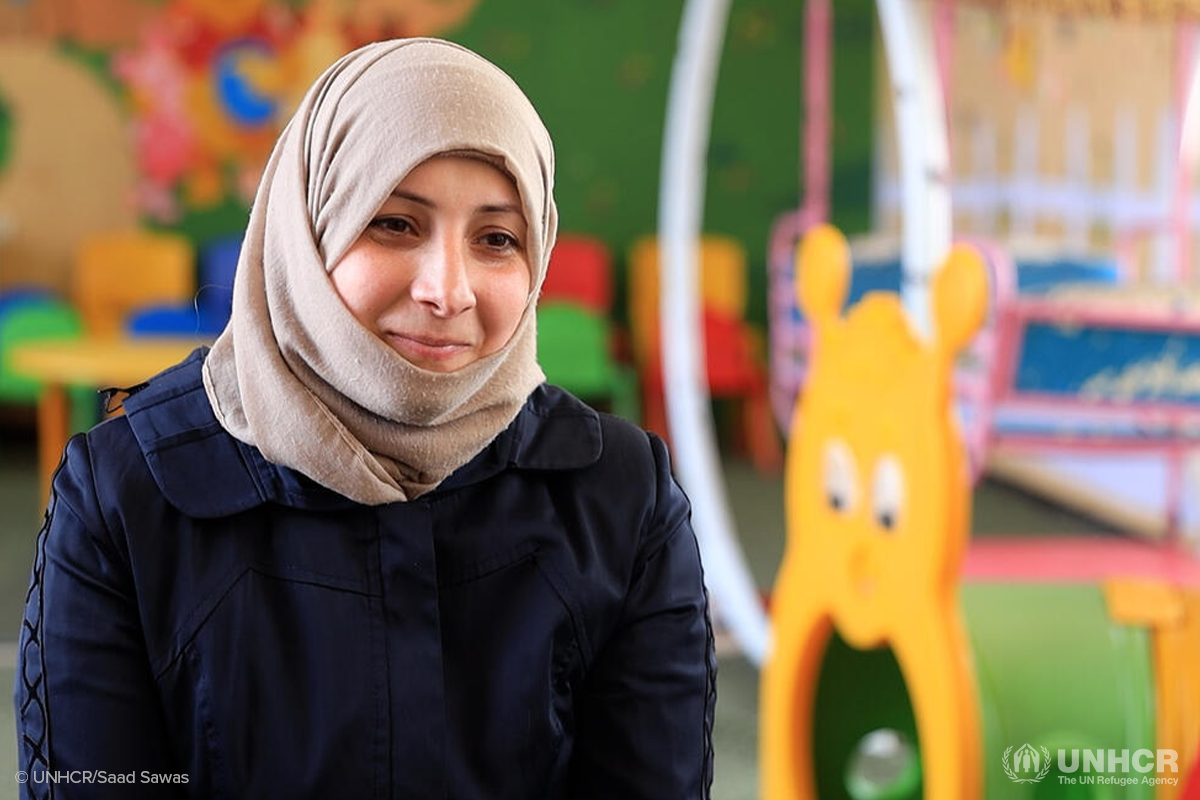
Khadija, who is internally displaced within Syria, was forced to flee her home in Homs in 2013 due to intense fighting and has been moving around Syria ever since. Price increases in flour and cooking oil due to the COVID-19 pandemic and the conflict in Ukraine leave many families like Khadija’s struggling to acquire the supplies they need to celebrate Ramadan.
“I remember for Ramadan cooking many meals for the Iftar,” Khadija says. “Now we can’t afford more than one meal because prices have shot up. Every year – especially during Ramadan – we think it will be the hardest, but it only gets more and more difficult.”
How you can help…
This year, millions of refugees celebrated Ramadan away from family, friends and home. As they sat around their Iftar tables, many were missing familiar dishes and faces that make the celebration joyous. When you become a monthly donor, you help UNHCR provide families with the safety, protection and aid they need to observe the Holy month in peace.
